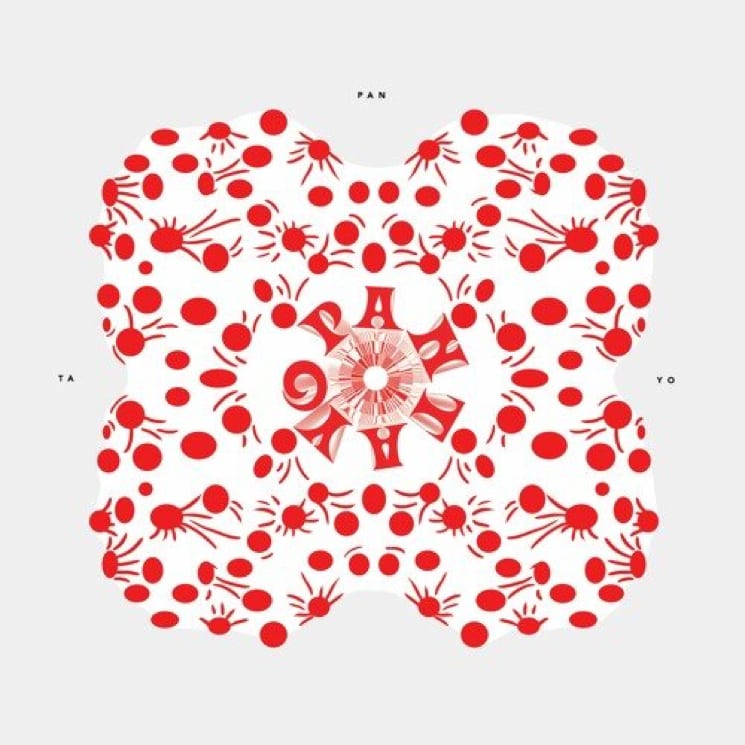Pantayo's self-titled debut album is a feast of relaxed synth, '80s pop ballad melodies, and the solemn ringing of their kulintang ensemble. The band members introduce harmonic tension through the sounds of the kulintang, sarunay, agong and gadingan, gong-like instruments originating from the Southern Philippines.
Opening track "Eclipse" introduces Pantayo's sound and ethos in a matter of seconds. Beginning with the steady kick drum, each element assembles one by one like a superhero team from the steady percussion, a hint of synth, the ringing kulintang, an infectious bassline, and vocals lounging atop the waves of the instruments.
Because of its placement in the farther reaches of the electronic, R&B and world genres, it was imperative that every track in this full-length album stood out individually, instead of succumbing to the danger of "exoticizing" the music with a shtick-like application of the kulintang ensemble. Confidently, Pantayo soar above and redefine this challenge. The record contains tracks that constantly reframe the kulintang ensemble from the instrumental "Bronsé" to tracks that mix the sounds tastefully underneath the vocals, like the delicate, higher-timbred sarunay in "Divine."
The lyrical content, which is a mix of English and Tagalog, reflects Pantayo's attitude in approaching the record. "Heto Na," which roughly translates to "Here it is!," beckons the listener over like an excited relative eager to share in the latest family revelry. This mood continues in "Taranta," in which members sing repeatedly, "Natataranta, huwag mataranta / Natataranta, hoy umayos ka!" ("Panicking, don't panic / Panicking, get a hold of yourself!"), wagging a finger provokingly. The continuous back-and-forth alludes to the diasporic sound that emerged organically from the Pantayo members' lived experiences.
After almost eight years of workshopping kulintang together, the quintet used the instruments that were originally used by Indigenous communities in the Southern Philippines for celebration and everyday life, and weaved them into the familiar tones of pop melodies and electronic synth. In the name Pantayo, which is translated wittingly into "for us," they built a home for themselves, which they now invite listeners to with outstretched arms.
Full disclosure: Pantayo member Kat Estacio is Exclaim! Magazine's layout editor.
(Telephone Explosion)Opening track "Eclipse" introduces Pantayo's sound and ethos in a matter of seconds. Beginning with the steady kick drum, each element assembles one by one like a superhero team from the steady percussion, a hint of synth, the ringing kulintang, an infectious bassline, and vocals lounging atop the waves of the instruments.
Because of its placement in the farther reaches of the electronic, R&B and world genres, it was imperative that every track in this full-length album stood out individually, instead of succumbing to the danger of "exoticizing" the music with a shtick-like application of the kulintang ensemble. Confidently, Pantayo soar above and redefine this challenge. The record contains tracks that constantly reframe the kulintang ensemble from the instrumental "Bronsé" to tracks that mix the sounds tastefully underneath the vocals, like the delicate, higher-timbred sarunay in "Divine."
The lyrical content, which is a mix of English and Tagalog, reflects Pantayo's attitude in approaching the record. "Heto Na," which roughly translates to "Here it is!," beckons the listener over like an excited relative eager to share in the latest family revelry. This mood continues in "Taranta," in which members sing repeatedly, "Natataranta, huwag mataranta / Natataranta, hoy umayos ka!" ("Panicking, don't panic / Panicking, get a hold of yourself!"), wagging a finger provokingly. The continuous back-and-forth alludes to the diasporic sound that emerged organically from the Pantayo members' lived experiences.
After almost eight years of workshopping kulintang together, the quintet used the instruments that were originally used by Indigenous communities in the Southern Philippines for celebration and everyday life, and weaved them into the familiar tones of pop melodies and electronic synth. In the name Pantayo, which is translated wittingly into "for us," they built a home for themselves, which they now invite listeners to with outstretched arms.
Full disclosure: Pantayo member Kat Estacio is Exclaim! Magazine's layout editor.
